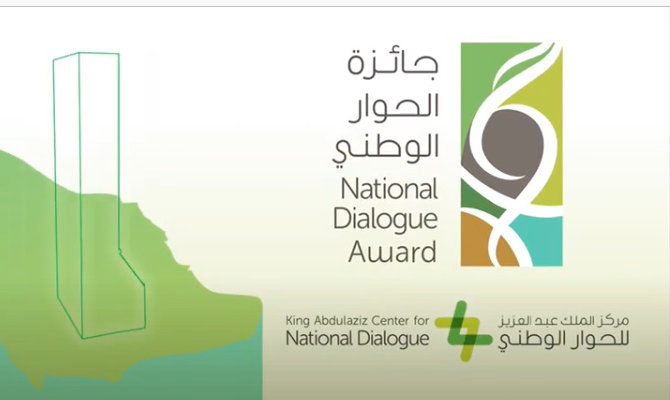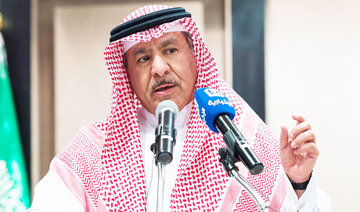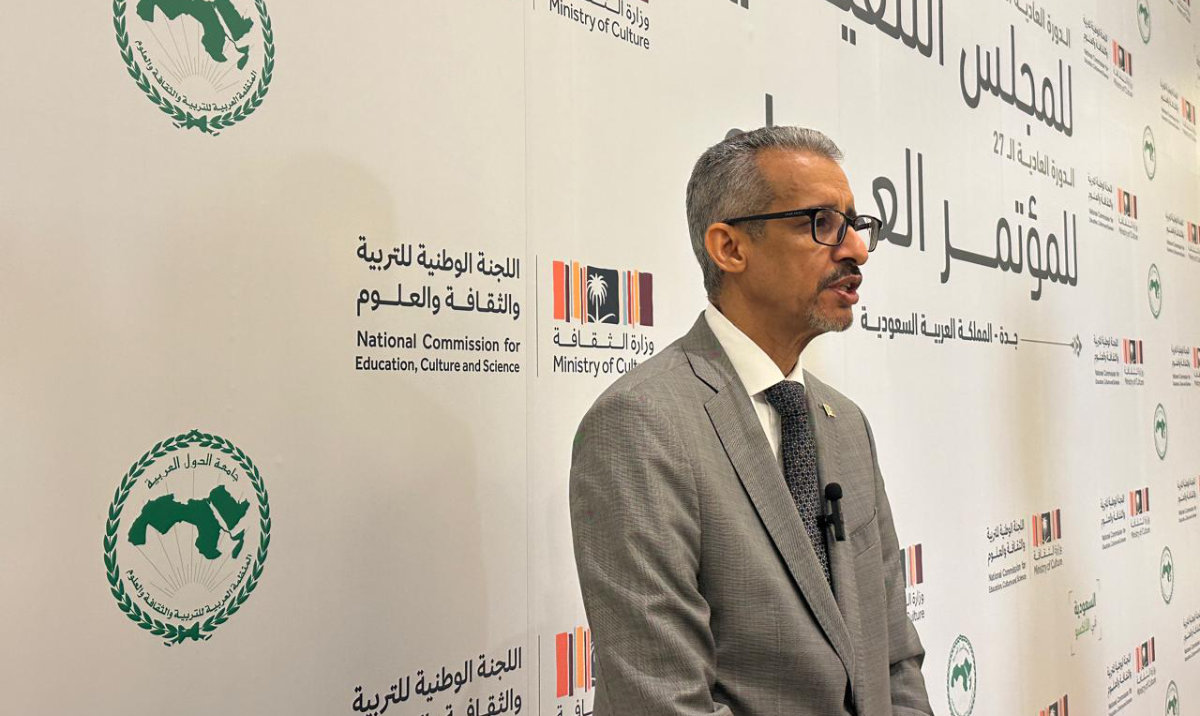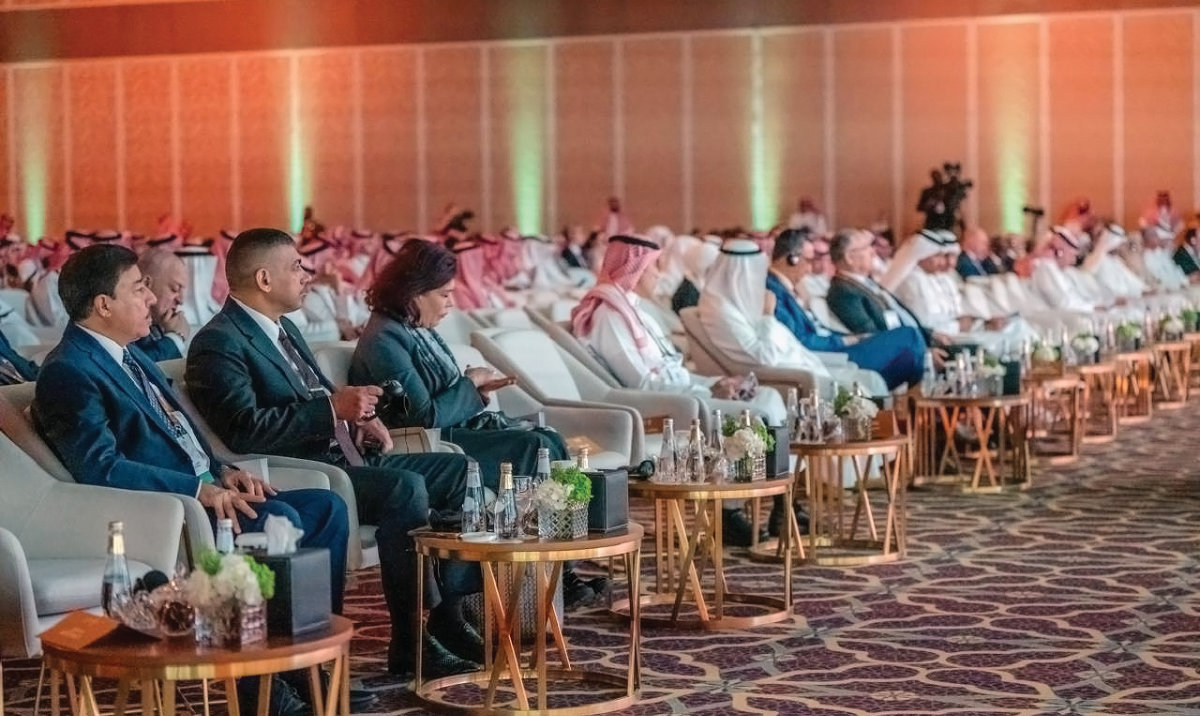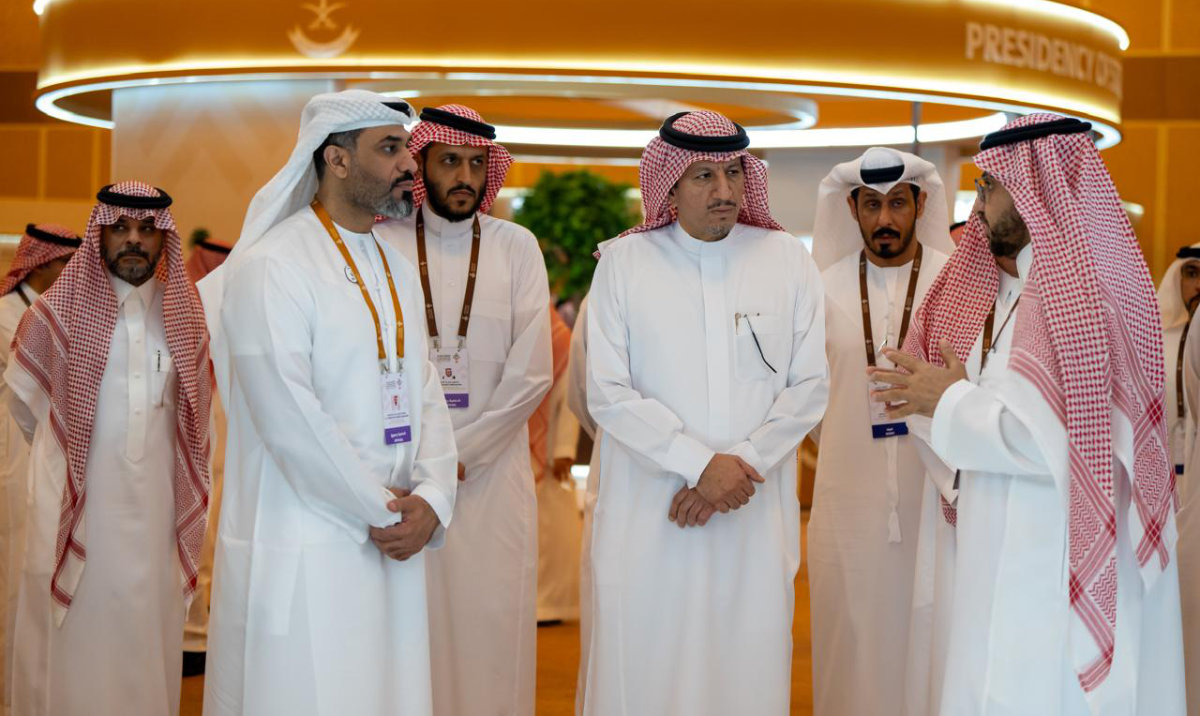JEDDAH: The King Abdul Aziz Center for National Dialogue’s recently launched National Dialogue Award will help KACND become an “incubator of creativity,” according to Ibrahim bin Zayed Al-Asiri, the center’s deputy secretary-general.
Al-Asiri was speaking at a media function at KACND’s headquarters in Riyadh on Wednesday to introduce the recently launched award.
Opinion writers, intellectuals and representatives of media outlets gathered to hear Al-Asiri review the concepts and values of the award, its objectives, branches, foundations and stages, in addition to the mechanisms for its implementation and the selection of participants, as well as the inspections, criteria and conditions to apply.
He also discussed the material and nonmaterial prizes that will be awarded to the winners, as well as the desired results.
Al-Asiri said that the National Dialogue Award is one of the national initiatives launched by the center to achieve its goals and mission, in line with the development and growth that the Kingdom is witnessing in all fields.
HIGHLIGHTS
The award is divided into four categories — first for the government institutions, second for the private sector, the third for civil society institutions and the fourth one for individuals.
Prizes consist of a certificate approved by the center, a medal (or shield), and SR200,000 ($53,000).
The center also will hold a forum in which the winners can give lectures on the topics of their work and areas of expertise.
He highlighted the importance of the award in encouraging national achievements submitted by the public or private sectors, civil society institutions or individuals, which have contributed to promoting the values of tolerance, coexistence and national cohesion that the center seeks to consolidate in society.
Al-Asiri expressed his hopes that the award would achieve its objectives so that the center would be one of the incubators of creativity, allowing innovators to express their thoughts and ideas for their nation.
The award is based on four main pillars, the first being the common religious and Arab values on which Saudi society models its culture and customs.
The second is the Kingdom’s Vision 2030, which holds national aspirations aimed at promoting the values of tolerance, coexistence and peace; and the third is represented in the center’s strategy, which seeks to make Saudi society a model of prosperity and tolerance.
The fourth pillar represents the diversity of the Kingdom in its various regions, which exemplifies a positive model for coexistence and cohesion.
The award includes four categories, the first of which is awarded to government institutions that have tangibly contributed to promoting the values of tolerance, coexistence and national cohesion.
The second is awarded to private sector institutions that support or implement programs that have a societal impact in consolidating the values of dialogue and tolerance.
The third category will be awarded to civil society institutions, while the fourth will be granted to the distinguished and innovative works carried out by inspiring citizens, through which they contributed effectively to promoting respect for difference and diversity.
The center has set many conditions that should be met by applicants, the most prominent of which is to be a Saudi national, an individual or an institution that has made a qualitative contribution to the theme of the award, and to be working for the center.
Conditions also stipulated that the submission be on the award’s website before the deadline, which is yet to be decided.
Prizes consist of a certificate approved by the center, a medal (or shield), and SR200,000 ($53,000) to be granted to the winners whose work will be featured at the annual ceremony to be held at the center’s Riyadh headquarters.
The center also will hold a forum in which the winners can give lectures on the topics of their work and areas of expertise.
Applications can be made through https://award.kacnd.org/



